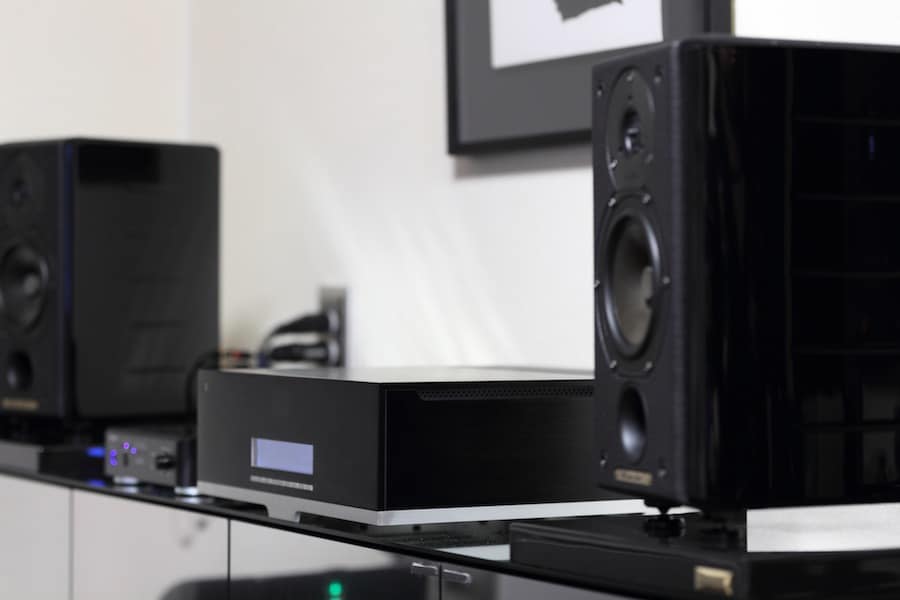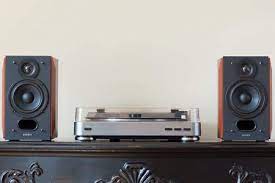Distortion in speakers happens when an unexpected change in the original sound a speaker produces to something different. There might be several distortion causes, and increasing the speaker’s volume or high sound volume is one.
On the other hand, noise is an external factor that finds its way and alters the original sound. So noise will cause the original sound to sound a little extra and unwanted signals popping up.
This means distortion is the alteration of original sound by something else. There are so many reasons why a speaker will experience sound distortion at high volumes.
It doesn’t matter whether you are blasting your favorite album while returning with your friends from a road trip, or you are listening to some slow songs at high volume after a breakup; you must have noticed that the speakers at high volumes tend to sound distorted.
This distorted sound makes listening to your song not so great, causing the moment to be ruined a little bit. Having a good understanding of speaker distortion at high volume will help you take the necessary steps to prevent your speakers from getting permanently damaged.
A speaker tends to distort at high volumes if the amplifier fails in supplying enough power to the speaker, making it difficult for the speaker to produce loud sounds. So one wants to stress distortion in speakers because they are capable of causing damage in speakers.
So it would help if you considered reducing volume or readjusting wires when you notice distorted sounds coming from your speaker.
The process through which sound waves generate music via a speaker has proved to be complicated over the years, and there are so many factors responsible for why a speaker would produce distorted sounds.
This is why we have decided to bring you this piece which contains useful information on the causes of speaker distortion at high volume. So without wasting further time, come with us as we take you on a journey on identifying what these causes are.
Check This Post: Round Vs Oval Speakers
Content Navigation
Speaker Distortion At High Volume

Practically speaking, speaker distortion is described as audible distortion we hear in sounds that a speaker produces. Identifying these distorted sounds won’t be difficult even for untrained ears, meaning distortion will be very easy to identify while listening to sounds from your speaker.
Speaker distortion at high volumes can be a result of any of the following;
What Causes Speaker Distortion
Having A Stressed Speaker Cone
If a speaker develops mechanical failure, it is common for distortion to happen at this point. For example, when high volume is sent to a speaker and the speaker isn’t capable of handling this high volume, it causes the cone to move far than where it is designed to move.
This leads to the stressing of the cone material, resulting in a distortion of sounds and destruction of the speaker in the long run.
Presence Of A Melting Speaker Cone
Thermal failure is possible when a speaker keeps getting a high volume that it can’t handle, and this thermal failure ends up causing sound distortion to come out from the speaker.
A speaker component will feel too much heat when there is so much heat power inside the speaker, and this causes the glue holding the cone together to melt when the amount of heat in the speaker increases.
This causes the speaker to produce distorted sounds, which worsens, leading to the damage of the entire speaker.
Melting Coil
The coil inside the speaker will melt if there is a high and excessive volume in the speaker. You should know that their wires are fragile and prone to damage.
One of the fastest ways to meet is when they are produced to excessive heat, causing the speaker to produce distorted sounds. When these wires burn out, it simply means that your speaker is now damaged.
The only way to deal with these problems and get your speaker working again is by running a new coil once again.
See This: How Does A Moving Coil Microphone Work
Little Boost And Gain Control
A higher gain and boost exceeding what a speaker can bear will lead to thermal and mechanical failure, leading to sound distortion or permanent speaker damage.
This is why you must move to adjust the speaker’s volume, equalizer, gain, and bass when you notice distortion of sounds or risk permanent damage to the speaker.
Incorrect Use Of Crossover
Misusing a crossover and the very high speaker volume will lead to sound distortion or speaker damage. Likewise, if the speaker or subwoofer is incorrectly wired, it can cause an incorrect speaker load.
This speaker will produce distorted sounds as long as you leave the speaker’s volume at a high level.
Wrong Cabinet Size
Enclosing a subwoofer or speaker in the wrong cabinet can lead to sound distortion, and it will distort sounds, especially at high volumes. In addition, if the cabinet is too large, the suspension of sounds at high volumes will be affected.
This might cause tearing or detachment of the surround from the frame, and this will end up causing permanent speaker damage or distortion of sounds at high speaker volumes. This is why audiophiles are asked to pay close attention to a speaker’s cabinet size when shopping for a speaker.
Overloaded Source
It would help if you had an excellent idea regarding the amount of power you can handle. For example, if a mic or computer is overloaded with audio, you will get distorted sounds.
If a musical instrument keeps sending too many boosted signals, the speaker will sound distorted because of the overload on the speakers.
Conclusion – Speaker Distortion At High Volume
You might not have paid enough attention to the causes of speaker distortion at high volume before now. Still, this article will help you in identifying the problems to avoid permanent speaker damage.
You might not realize this, but having a good knowledge of these problems will be helpful in the long run. For example, distortion might not be noticed at low levels, but switching up the volume level of your speaker will tell you if you are listening to distorted sounds or not.
Related Posts
Does Playing The Piano Make You Smarter?
5 Best Speakers For Piano Music 2023
Does A Piano Need To Be Tuned?
How Many Keys Are There On A Piano

